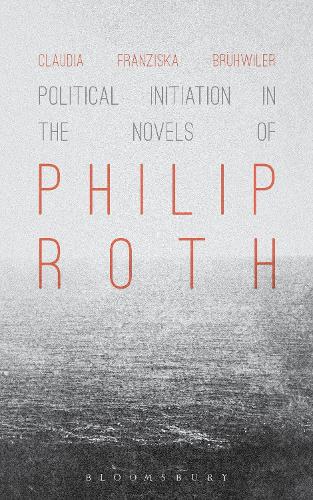
Political Initiation in the Novels of Philip Roth
(Hardback)
Available Formats
Publishing Details
Political Initiation in the Novels of Philip Roth
By (Author) Claudia Franziska Brhwiler
Bloomsbury Publishing PLC
Bloomsbury Academic USA
20th June 2013
United States
Classifications
General
Non Fiction
Literary studies: c 1900 to c 2000
813.54
Physical Properties
Hardback
192
414g
Description
Political Initiation in the Novels of Philip Roth exemplifies how literature and, specifically, the work of Philip Roth can help readers understand the ways in which individuals develop their political identity, learn to comprehend political ideas, and define their role in society. Combining political science, literary theory, and anthropology, the book describes an individual's political coming of age as a political initiation story, which is crafted as much by the individual himself as by the circumstances influencing him, such as political events or the political attitude of the parents. Philip Roth's characters constantly re-write their own stories and experiment with their identities. Accordingly, Philip Roth's works enable the reader to explore, for instance, how individuals construct their identity against the backdrop of political transformations or contested territories, and thereby become initiandsor fail to do so. Contrary to what one might expect, initiations are not only defining moments in childhood and early adulthood; instead, Roth shows how initiation processes recur throughout an individual's life.
Reviews
Brhwiler considers the 'ambiguities of beginnings' in Philip Roths oeuvre, looking specifically at Roths representation of the evolution of an individuals political self... Exceedingly well researched, Political Initiation in the Novels of Philip Roth covers a wide range of Roths novels and the intertexts within them. Putting this fiction into conversation with predominant thinking in the social sciences, Brhwilers work not only serves as a model for Roth studies, but also as a model for interdisciplinary research overall. -- Aimee Pozorski, Central Connecticut State University, USA
This book is an amazing critical journey through the works of Philip Roth. It offers new approaches to the complex relationships between the factual and the fictional, opening inspirational views to the ambiguous landscape of Roths creativity. Roths novels are redefined in Claudia Franziska Brhwilers essay by the political textures of society and the ways characters express the process of their own initiation and development. Brhwiler reveals with an extremely sharp eye the multiple ways Philip Roth plays games with his readers, how he makes them struggle between the undefined, the transitor,y and the fragmentary in a space of counter-realities. With a sense of literary imagination, theatrical sensibility, and critical thinking Brhwiler unfolds Roths panorama of political identities, whereby she shows creators, scholars, political scientist and literary theorist how to read fiction in a nutritious way. This is a necessary book that vindicates the dialogue between arts and sciences, bringing inclusive approaches to the tense experience of historiography and fiction. Identity, diversity and otherness are expressive tools that make Roth novels connect with global history and individual existence. The term initiation is in constant movement between the anthropological and the political, adding new attributes to the creative power that builds Roths characters. Literary theory has a lot to learn from the new approaches political science is adding to fiction. This excellent book by Claudia Franziska Brhwiler proves through the works of Philip Roth that political consciousness is the new poetics of politics in the space of creative imagination and identity. -- Ana Merino, MFA Director, Creative Writing, University of Iowa, USA
Author Bio
Claudia Franziska Brhwiler is Lecturer at the University of St. Gallen, Switzerland.
